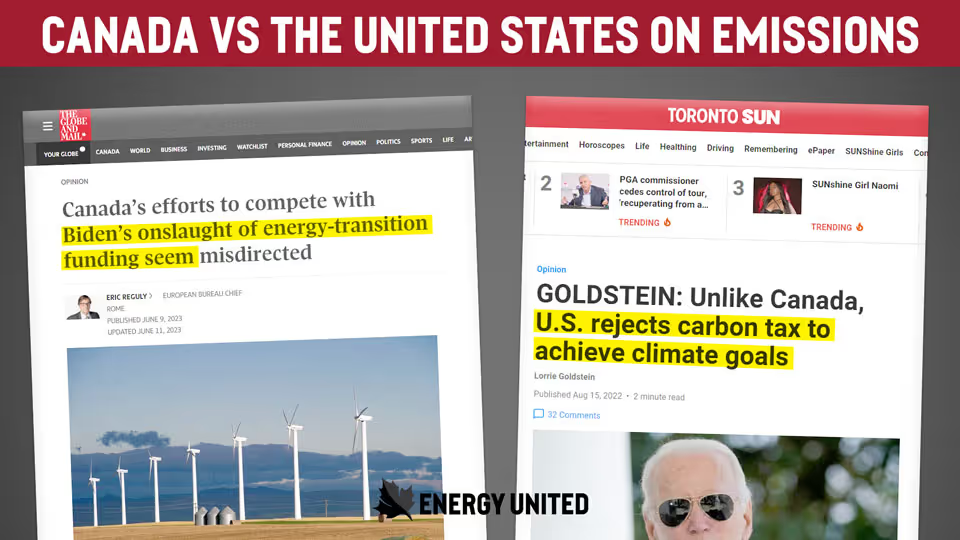Affordability
Canada has such a high standard of living because we produce and export our natural resources to the world. But these days, these industries are much more likely to be attacked for activist causes than recognized for their positive impact on our communities.
In fact, in Canada, we’re taxed for our use of the resources that fund our way of life.
Our energy policy is taking us on a path designed to make energy more expensive. Right now, Canada has stated it is determined to:
- Ban the sale of internal combustion engine (ICE) vehicles by 2035.
- Ban the use of natural gas in Canadian electricity grids by 2035.
- Reduce Canadian emissions 40-45 per cent from 2005 levels by 2030 – the most aggressive ambition laid out in the Paris Agreement.
- Annual carbon tax increases
- National Clean Fuel Standard
Some want you to be believe Canada’s oil and natural gas industry is heavily subsidized.
Canada has some of the world’s highest taxes and royalties. Most of the global oil and natural gas subsidies are directed toward consumers. The 2022 global energy crisis pushed fossil fuel consumption subsidies to an all-time high of over $1 trillion USD.
But here, when you hit the pump, government taxes average nearly 38 per cent of every dollar spent to fill your tank.
It is clear the world craves energy – governments all over the world are investing billions of dollars to ensure their citizens have access to reliable and affordable sources of natural gas and oil.

Yet Canadian policy seems determined to ensure they get their energy from other countries and not Canada.
Why is that?
Because Canada’s energy is being blocked from the world.
More Insights

